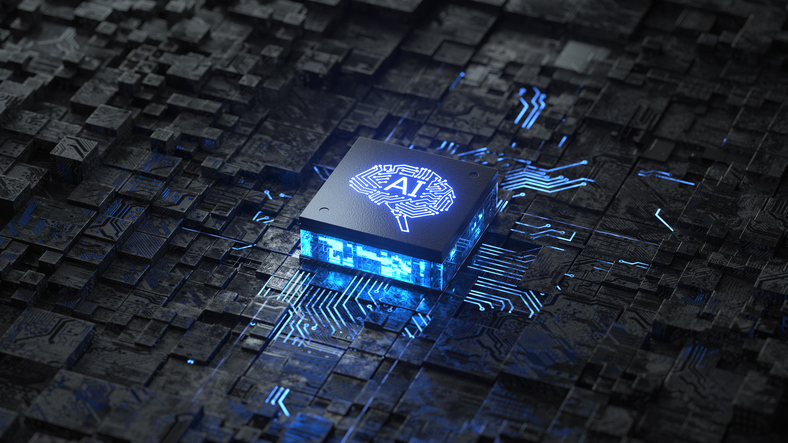Artificial Intelligence (AI) – Concerning or Normal?
Let’s Talk About IT
Often times inexperienced or non-technical users may not understand certain concepts or may imagine their use case based off of their imagination. When I first heard the term Artificial Intelligence, I too am guilty of associating that term with things I have seen on television, you know like the movie iRobot? Robots everywhere, taking over our very existence and replacing us with man made machines that can do everything we can, but better! Or maybe the government can have the ability to track humans through various everyday applications like facial recognition on your smartphone! Well allow me to ease your mind, such thoughts (although entertaining) are not quite a “reality,” in fact they are so far from reality that you can relax, and actually begin to understand how you directly benefit from artificial intelligence.
Artificial intelligence or AI is the level of intelligence that is demonstrated by none other than a machine. Machines are intelligence agents and all devices that perceive their environments in which they subsequently take an action to increase the probability of achieving a goal. Within AI, machines happen to mimic cognitive functions that humans refer to as “learning” or “solving issues,” thus decreasing the workload of “humans” overall.
The Core Concepts of Artificial Intelligence (AI) explained
To grasp the concept of how artificial intelligence works, it is important to understand the subfields of artificial intelligence and the application of these subfields:
- Machine Learning (ML): Machine learning is how the machine uses past data to identify patterns, analyze, and reach a feasible conclusion. Using ML, machines can make predictions and learn from past experiences to improve moving forward.
- Deep learning: Deep learning is a part of ML. Deep learning allows machines to reach an outcome from various inputs. This is done by utilizing artificial neural networks that learn by processing data.
- Neural Networks: Neural networks are a replica of neural connections in the human brain. The process uses a series of algorithms that process layers of data by establishing a relationship between basic variables.
- Natural Language Processing (NLP): NLP enables interaction between machines and humans by allowing machines to identify, transcribe, and produce logical responses of human language.
- Cognitive Computing: Cognitive computing focuses on improving the interaction between machines and humans by modeling the thought process of a human brain in machines and computers.
- Computer Vision: Computer vision allows computers to interpret visual data by applying deep learning and pattern identification and breaking down the contents of an image to understand it better.

Machines are our friends, not our enemies!
Everyday AI usage for users just like you!
Although some users may not realize it, AI is and has been applied to many of our everyday activities. Normal people utilize AI through various ways, here are some of the most common:
- Web search: Appropriate search results are provided to the users by analyzing vast previous data.
- Digital personal assistants: Virtual assistants such as Siri and Bixby are a result of AI. Such services are extremely personalized based on previous data and they provide relevant recommendations based on the user.
- Online shopping and advertising: AI is used to analyze the previous shopping searches or past purchases a user has made to provide more relevant options based on user past data.
- Machine translations: Software built for translating languages such as the Google translator are also an example of artificial intelligence.
- Cybersecurity: Cybersecurity has reached the next level with artificial intelligence. By examining the constant input of data and identifying anything unusual, AI can easily identify and fight cyber-attacks.
- Artificial intelligence and health: AI can be used to analyze vast health data and establish patterns that will allow discoveries and improvements in diagnostics.
- Artificial intelligence and Covid -19: Since the spread of this virus, AI is being used to track data and understand the pace in which the virus is spreading. It is also being used in malls and airports for thermal imaging. In hospitals, computerized tomography lung scans are being carried out to identify the virus.
- Food and farming: AI has enabled the production of more and improved output with less input in the agricultural sector by minimizing the use of fertilizers and pesticides.

AI is not a new concept, it is an expanded concept that has been misconstrued by the general public.
Why is AI the future?
Artificial intelligence makes existing processes across all industries more efficient. Machines use algorithms to make rational, non-biased decisions by analyzing data inputs. The use of such algorithms reduces errors when solving intricate problems. When AI is properly applied, users both knowingly and unknowingly, save a significant amount of time in day to day activities as well as professional tasks. AI reduces human error, which happens quite frequently and can be detrimental dependent upon the error applied. Machines process information in a manner that the human mind cannot compete with, applying AI advances capabilities within programs, enhances productivity levels and produce more effective results in a fraction of the time that a human can produce the same results. AI was initially developed specifically to help humankind expand technical capabilities and to increase efficiency, to date AI has proven its concept and is gaining more support everyday. The fact is AI holds the vote and the support of many everyday users due to the various benefits it can provide, as for me, I am supportive of AI and I look forward to see how its capabilities will advance even further.

